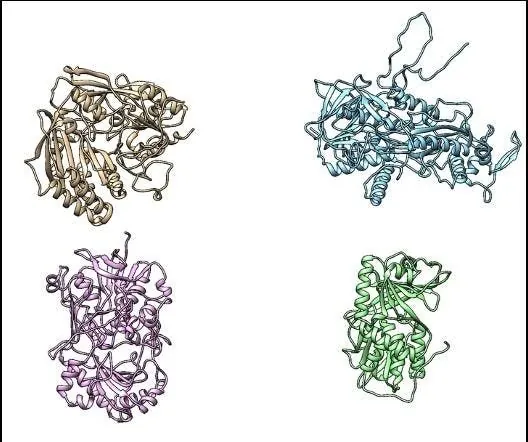
Unlocking the Brain's Emotional Symphony: How Music Reveals Our Feelings
2025-09-11
Author: Jacob
Emotions ebb and flow like the tides, but did you know your brain is a maestro conducting this intricate symphony of feelings? Recent research unveils that our emotional transitions—whether joy, sadness, or fear—are not mere whims. Instead, they follow a meticulously organized process that shapes our behaviors and decisions.
Music: The Gateway to Understanding Emotions
A dedicated team of researchers from Columbia University, led by neuroscientist Matthew Sachs, embarked on an exploration of this complex emotional orchestra using music as their lens. Published in the esteemed journal eNeuro, their study dives deep into how our brains navigate emotional shifts and how the echoes of past feelings influence our current emotional states.
Crafting Emotional Journeys through Sound
To dissect these emotional transitions, Sachs and his team collaborated with composers to create original music pieces designed to usher listeners through various emotional terrains. Participants, a diverse group of 39, experienced this musical journey while connected to functional MRI (fMRI) machines, allowing scientists to document real-time brain activity.
As listeners journeyed through the emotional landscape crafted by the composers, the researchers closely observed the brain's dynamic responses, capturing how previous emotions sculpted the reaction to the present.
Mapping the Brain's Emotional Highways
The findings were illuminating: our brains actively map emotional changes rather than simply reacting to them. Utilizing advanced data analysis techniques, researchers discovered that specific activation patterns in the temporal-parietal region of the brain predictably represented these emotional transitions.
This area is crucial for processing auditory information and interpreting social signals. When a participant's emotions shifted due to the music, identifiable changes occurred in this region, demonstrating how our brains smoothly transition between similar feelings.
Emotional Context: The Key to Experience
Imagine you’re absorbing a joyful melody only to encounter a sorrowful passage right after. How your brain reacts hinges significantly on the emotional disparity between those two sections. Those transitioning from joy to sadness exhibited distinctly different brain responses compared to those moving from tension to sadness, emphasizing the vital role of emotional context.
Participants' self-reported emotional experiences aligned perfectly with brain data—stronger emotional transitions and faster responses were noted when feelings were more closely linked.
A Glimpse into Emotional Flexibility—and Rigidity
Understanding how our emotions unfold isn't just intriguing; it can transform lives, especially for individuals grappling with mental health challenges. Those with mood disorders often experience what's known as emotional rigidity, where they find it difficult to break free from a singular emotional state.
Sachs envisions that this groundbreaking research may lead to innovative therapeutic approaches. "We know individuals suffering from mood disorders exhibit emotional rigidity," he explains. "This study could help us identify neural markers related to their persistent negative states, ultimately paving the way for targeted treatments that help them shift their emotional patterns."
The Power of Music in Emotional Understanding
The implications of this research extend far beyond emotion studies alone. It adds to the growing body of work surrounding the brain's emotional dynamics, revealing not just where emotions are processed but also how emotional transitions unfold.
This research underscores the rich potential of music as a powerful tool for scientific discovery. Music not only resonates with our souls but also enables profound investigations into how we experience emotions. It shapes our inner narratives and reveals the hidden connections between our emotional states.
Conclusion: The Journey Ahead
Understanding the fluidity of emotions could be crucial in improving not only mental health treatments but also the design of empathetic artificial intelligence. In a world rife with emotional complexities, the ability to adapt is paramount for survival. Thanks to these pioneering insights, science is beginning to unravel the intricate mechanisms that keep our emotional experiences in sync.









 Brasil (PT)
Brasil (PT)
 Canada (EN)
Canada (EN)
 Chile (ES)
Chile (ES)
 Česko (CS)
Česko (CS)
 대한민국 (KO)
대한민국 (KO)
 España (ES)
España (ES)
 France (FR)
France (FR)
 Hong Kong (EN)
Hong Kong (EN)
 Italia (IT)
Italia (IT)
 日本 (JA)
日本 (JA)
 Magyarország (HU)
Magyarország (HU)
 Norge (NO)
Norge (NO)
 Polska (PL)
Polska (PL)
 Schweiz (DE)
Schweiz (DE)
 Singapore (EN)
Singapore (EN)
 Sverige (SV)
Sverige (SV)
 Suomi (FI)
Suomi (FI)
 Türkiye (TR)
Türkiye (TR)
 الإمارات العربية المتحدة (AR)
الإمارات العربية المتحدة (AR)